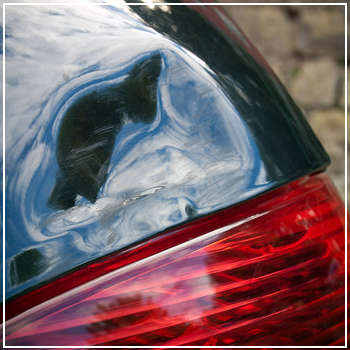 You’d be surprised to know how many drivers don’t have their vehicles checked after a seemingly minor, low-speed fender-bender. In this scenario, some people decide it’s not worth the hassle of an insurance claim.
You’d be surprised to know how many drivers don’t have their vehicles checked after a seemingly minor, low-speed fender-bender. In this scenario, some people decide it’s not worth the hassle of an insurance claim.
A fender-bender can set off a chain reaction. Firstly, the damage runs deep in your car to the engine and wiring. The longer it goes unchecked, the more the problem exacerbates. Whether systems are shutting down or you hear clanking noises, you’ve got to take the car into the auto body shop.
Before you brush off your next fender-bender, think about how these seemingly insignificant accidents can affect your car on a greater level.
Tires and Alignment
After a fender bender, your car may have alignment issues. You’ll notice it with your steering system – it feels out of whack, the car drifts or it pulls to one side. With time, you’ll further feel the effects on the tires, which eventually display uneven wear or blow out prematurely.
Frame Damage
Frame damage can go unnoticed, but with time, it compromises the car’s structural integrity. When this happens, a less-than-straight frame no longer meets OEM factory specifications. In a worst-case scenario, it could influence how your air bag deploys in the event of a major accident and how well it absorbs impact.
Wiring Issues
You don’t see them, but wires are essentially delicate veins running through your car, keeping everything connected and operating properly. A light hit can physically knock wires out of place, if not sever them, leading to:
- Short circuits
- Damaged connectors
- Damage to your battery
- Failure for electronic components to operate, including anti-theft systems, electric windows, locks and the computer powering your dashboard.
With time, the issues hardly get better and may blossom into costlier fixes. After an accident, always have an auto body technician review your car’s wiring system as soon as possible.
Transmission
Is your car equipped with all-wheel drive? If so, a rear-end accident could push your car’s drive shaft into the transmission, resulting in loud, clunking noises when you shift gears. If the issue goes unaddressed, metal pieces may break off the gears and travel to the cooling system, where they can cause a significant amount of damage.
Rusting
That seemingly small scratch you initially dismissed at the scene of the accident? If it’s not painted over, it turns into a pathway for rust, exposing the underlying metal. Once that metal is exposed to rock salt, water and humidity, it begins to rust and can travel underneath the vehicle’s paint. Eventually, body panels and fasteners start to display jagged holes and prominent rust spots, reducing your vehicle’s resale value.
The Engine
Like wiring, engine components are delicate, hidden and easily loosened, leading to mechanical issues after an accident. Even if your car continues to operate as normal, seeing the check engine light isn’t. If you don’t get your car checked out right away, this sign indicates a mechanic should look at it as soon as you can schedule an appointment.
Exhaust System
Another issue stemming from a rear-ending, the exhaust pipe may get dented, bent or misshapen in some form. At this point, the car can’t remove toxic fumes as well and it may:
- Have lesser fuel economy
- Redirect poisonous exhaust into the cabin
- Catch on fire
To get these issues resolved, have DaSilva’s team diagnose the problem and repair the damage. To learn more or make an appointment, give us a call today.




